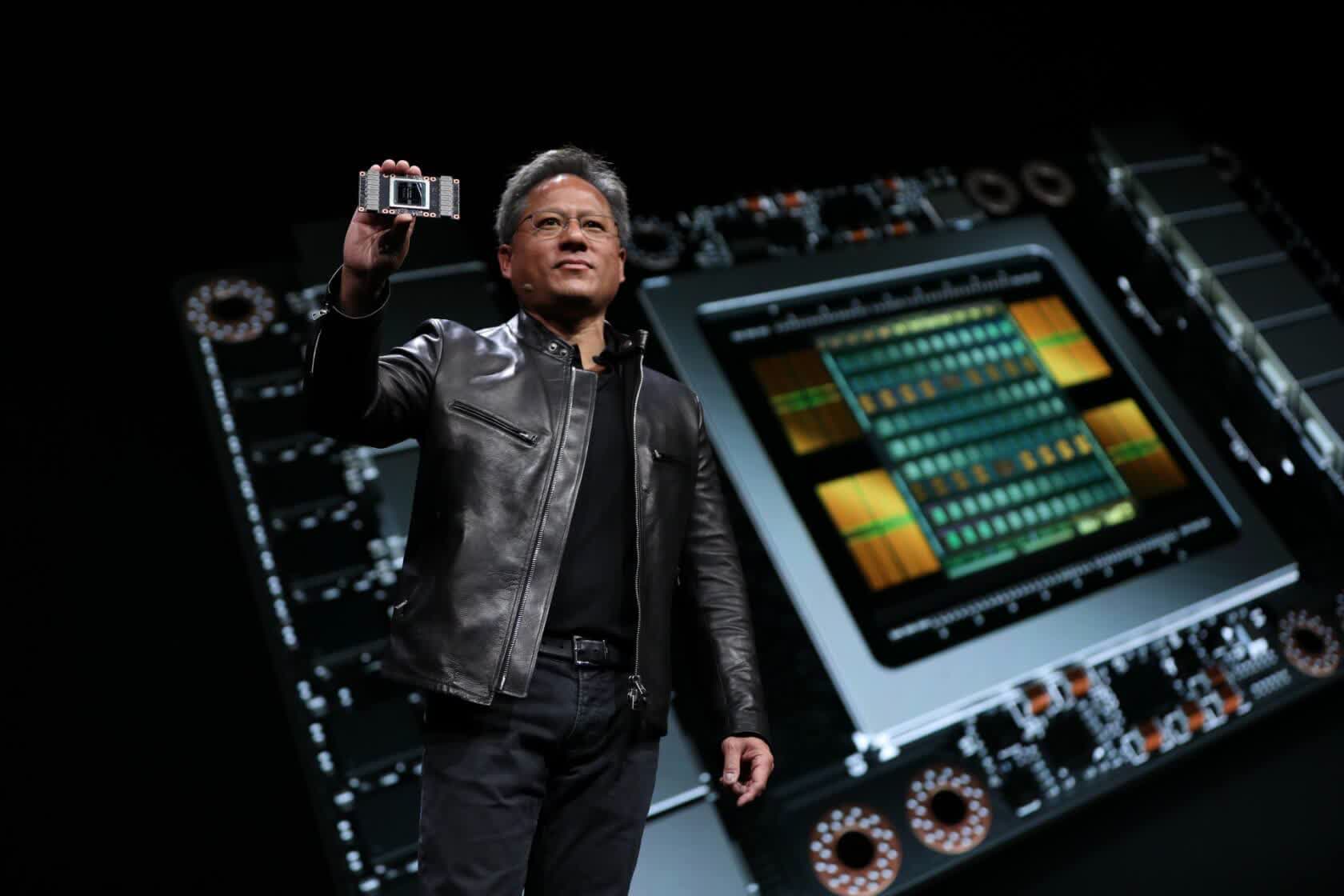A hot potato: Nvidia is experiencing the kind of success most companies could only dream of right now, and it's all thanks to the generative AI boom. But not everyone is praising Jensen Huang and his firm. After a rival chip maker accused it of delaying orders of AI GPUs to customers who are courting other suppliers, a former AMD vice president has called Team Green "the GPU cartel."
On Monday, the Wall Street Journal published a report alleging that Nvidia could be delaying data center GPU orders to companies who are having meetings with rival AI accelerator firms. Hardware startup Groq, which creates AI chips for LLM inference, said Nvidia customers have to be secretive about acquiring or ordering AI acceleration tech in case Nvidia decides to delay their orders as punishment.
"A lot of people that we meet with say that if Nvidia were to hear that we were meeting, they would disavow it," Jonathan Ross, CEO of Groq, told the WSJ. "The problem is you have to pay Nvidia a year in advance, and you may get your hardware in a year, or it may take longer, and it's, 'Aw shucks, you're buying from someone else, and I guess it's going to take a little longer.'"
It's not just Groq making these claims. Former AMD vice president Scott Herkelman responded to a Tom's Hardware post on X with "This happens more than you expect, NVIDIA does this with DC [data center] customers, OEMs, AIBs, press, and resellers."
"They learned from GPP to not put it into writing. They just do not ship after a customer has ordered. They are the GPU cartel, and they control all supply."
This happens more than you expect, NVIDIA does this with DC customers, OEMs, AIBs, press, and resellers. They learned from GPP to not put it into writing. They just don't ship after a customer has ordered. They are the GPU cartel and they control all supply.
– Scott Herkelman (@sherkelman) February 27, 2024
Herkelman knows more than most when it comes to the graphics industry's two biggest players. Before running Team Red's graphics division from 2016 to 2023, he was general manager of Nvidia's GeForce business between September 2012 to May 2015.
During Nvidia's recent earnings call, CEO Huang addressed the issue of how its AI chips are allocated in order to avoid customers receiving more than they require or moving to rival products. "We allocate fairly. We do the best we can to allocate fairly, and to avoid allocating unnecessarily," he said. Elsewhere, Nvidia CFO Colette Kress said that Nvidia expects its next-generation products (i.e., Blackwell) to be supply-constrained due to demand outweighing supply.
Some might claim this is just a case of rivals being jealous of Nvidia's success – the company's total earnings of $22.1 billion for the quarter marked a 265% YoY rise, propelling Huang to 21st position on Bloomberg's Billionaires Index. But this isn't the first time Nvidia has been accused of unsavory tactics.
Also read: Nvidia AI GPU buyers are selling surplus hardware as supply constraints ease
In 2018, Nvidia's GeForce Partner Program (GPP) was established, purportedly as a way of working closer with OEMs and add-in board (AIB) partners on new products, product launches, and marketing. But it transpired that the program was anticompetitive and anti-consumer, hurting both consumer choices and partners' ability to do business with rivals like AMD and Intel. Nvidia was eventually forced to kill off GPP.
In 2020, Nvidia informed YouTube channel Hardware Unboxed (and by extension, TechSpot) that it would cease providing GeForce Founders Edition review units. The reason given was that presenters Steve Walton and Tim Schiesser did not sufficiently focus on the RTX ray tracing features of its graphics cards. Nvidia eventually apologized and reversed its decision, though this only came after a wave of public anger against the tech giant.
